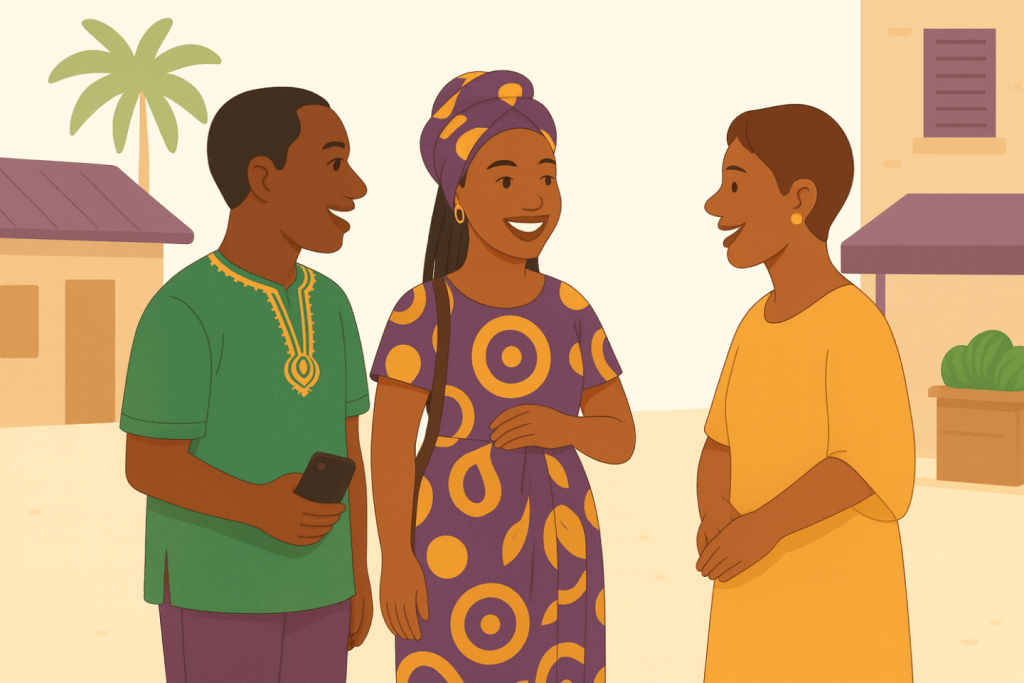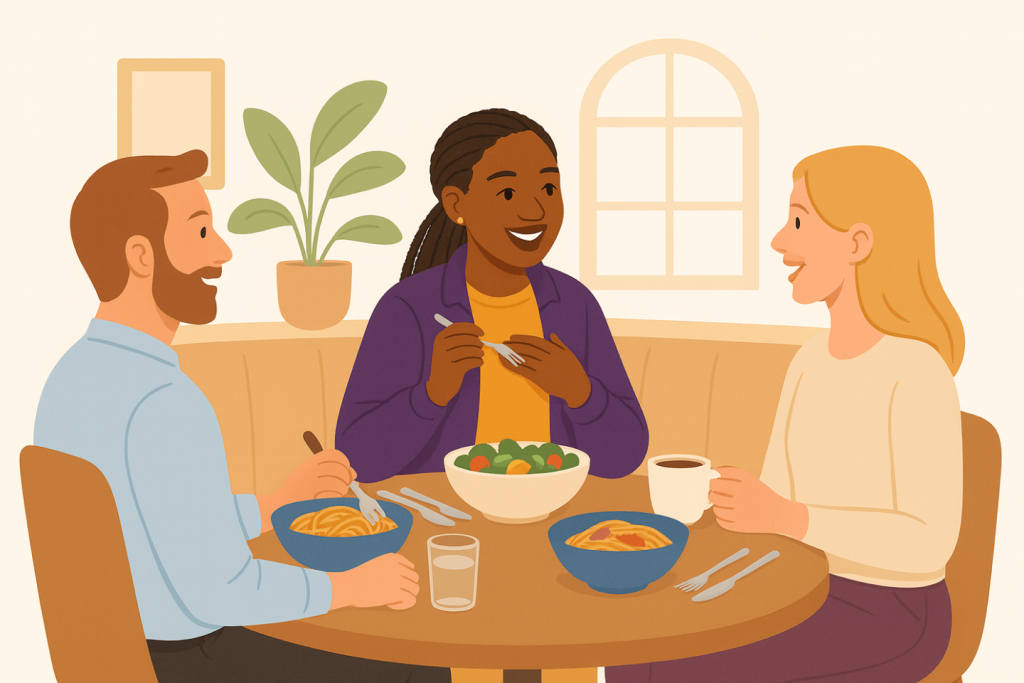Navigating a new identity and life in Europe as a Nigerian.
When you move to Europe as a Nigerian immigrant, you don’t just change location, you start a whole new life with culture shock, adaptation, and identity shifts. It’s like starting afresh and living a whole new life. The streets are different, the language is unfamiliar, the weather feels strange, and even the silence of strangers on the bus can be uneasy. The big question is: Does living in Europe feel more like culture shock or a culture blend?
The truth is, your life in Europe will hold a bit of both. There will be days when you long for the familiar warmth of Nigeria, and some days when you find joy being somewhere new.
Culture Shock for Nigerians Moving to Europe

The first few weeks in Europe often introduce you to a completely different rhythm of life. Things that are normal at home can feel unusual abroad. Some of the most common culture shocks include:
- The Weather: Back home, heat is part of everyday life; you know when it rains, the sun will still rise strong, and the air will be warm. In Europe, especially during the winter, it’s always cold. And worst when it snows. You may find yourself carrying heavy jackets in July during the summer. Because you’re used to year-round warmth rather than having long winters, snow, and short daylight hours. So, learning to dress in layers becomes part of the adjustment process.
- Social Interactions: In Nigeria, it’s normal to greet people warmly, even strangers, with handshakes, smiles, small talk, and to show concern for each other. But it’s different in Europe, because people love their personal space, and interactions can be more formal and reserved. And that cheerful “Good morning!” to someone on the bus might get you a quiet nod or no response at all.
- Food Adjustments: You’ll definitely miss the familiar taste of jollof rice, egusi, and suya, but in the local supermarket, you’ll find pasta, cheese, or sandwiches. While there are African stores, they’re not always nearby, and come with high prices and limited availability. Learning to improvise with European ingredients is how you can survive.
- Time and Punctuality: In Nigeria, “African time” is a cultural inside joke. Events often start later than scheduled. In Europe, punctuality is taken seriously. Missing a train by one minute means waiting for the next one, which might not come for another hour. Adjusting to this strict sense of time is often how you get by.
How Nigerians Adapt to Life in Europe

Rather than abandoning one identity for another, you can merge traditions to form a lifestyle that feels authentic and balanced. These are ways to mix both worlds:
1. Food fusion.
You can learn to cook your favorite meals with European ingredients. Jollof rice might come with locally sourced tomatoes and peppers, while stews can be adapted with available spices. Instead of dry fish from the market, you can use salmon or cod. You’ll still get the Nigerian flavor, but with a European twist. Before you know it, you’re making dishes that remind you of home while embracing alternatives.
2. Building communities.
You’ll soon discover you’re not alone. Nigerian churches, student groups, and cultural associations exist in almost every European city. Through these networks, you’ll find support, new friends, and events that remind you of home. Nigerian Independence Day celebrations or traditional weddings abroad will make you feel like you never left.
3. Fashion identity.
You can proudly rock your Ankara, agbada, or gele at cultural events. But at work or in casual settings, you might switch it up with tailored pieces with jeans, or even sneakers for a modern twist. Either way, it’s your style, your expression.
4. Career growth.
The adjustment to European work culture pays off. You’ll learn new systems, adopt professional skills, and sometimes pick up a new language. This is why knowing the best countries in Europe to migrate to from Nigeria is key. Over time, this helps you advance and even open more doors for yourself.
Blending Nigerian and European Culture With Ease

In fact, you’ll see yourself introducing jollof rice at dinner parties, teaching friends Afrobeats dance moves, or explaining Nollywood plot twists. But with time, your life stops being about choosing one culture over the other but becomes a blend of both like:
- Switching Languages: At home, you might speak Yoruba or Igbo, at school, you’ll speak English, and in your neighborhood, you might switch to French, German, or Dutch,which depends on which country you live in Europe. This ability makes you adaptable and culturally rich.
- Raising Children: If you start a family in Europe, parenting comes with a balancing act. You’ll want to instill Nigerian values like respect and communal living, while your children also absorb European independence and lifestyle. The result? A new generation that proudly identifies as both Nigerian and European.
- Entrepreneurship: Maybe you start a small business selling African spices, open a hair salon, or launch a tech startup. It’s easy to turn your cultural identity into an opportunity, serving both African communities and curious Europeans. Additionally sending money to Nigeria to source these products is no longer a problem with platforms like CadRemit.
- Arts and Music: You’ll notice how Nigerian culture travels with you. Afrobeats blares in European clubs, Nollywood movies stream across platforms, and Ankara inspires fashion designers. You’ll take pride in knowing your culture enriches Europe, too.
Challenges Nigerians Face Living in Europe

Even as you adapt, certain realities remain.
- Discrimination: Not everyone will accept you easily. You may face stereotypes, suspicion, or outright bias. Navigating this requires strength and sometimes a thick skin.
- Immigration Struggles: Visas, permits, and residency papers can be stressful. It’s a constant reminder that no matter how well you integrate, you must still prove your right to stay.
- Homesickness: No matter how much you blend in, you’ll still miss the energy of Lagos, the aroma of suya by the roadside, or your grandmother’s voice calling you by your native name. Phone calls and video chats help, but they can’t fully replace the warmth of home.
So, is life as a Nigerian in Europe about culture shock or culture blend? The answer is both. At first, everything feels overwhelming: the cold weather, the quiet streets, the unfamiliar food. But as time goes on, you find your rhythm. You adapt, you blend, and you’ll find yourself thriving. In the end, Europe doesn’t erase your Nigerian identity, but it reshapes it. Your identity becomes richer. You’re not just Nigerian anymore; you’re Nigerian-European. It doesn’t mean choosing one culture over another. Instead, it means carrying Nigeria in your food, your fashion, your music, your values, while also embracing the best of European culture. It’s about creating a new kind of belonging, one that proves you can be fully Nigerian, fully European, and proudly have an identity that belongs to both worlds.




